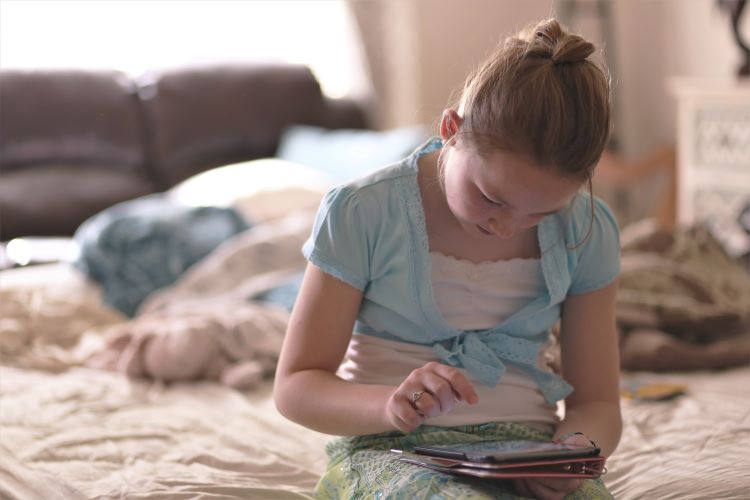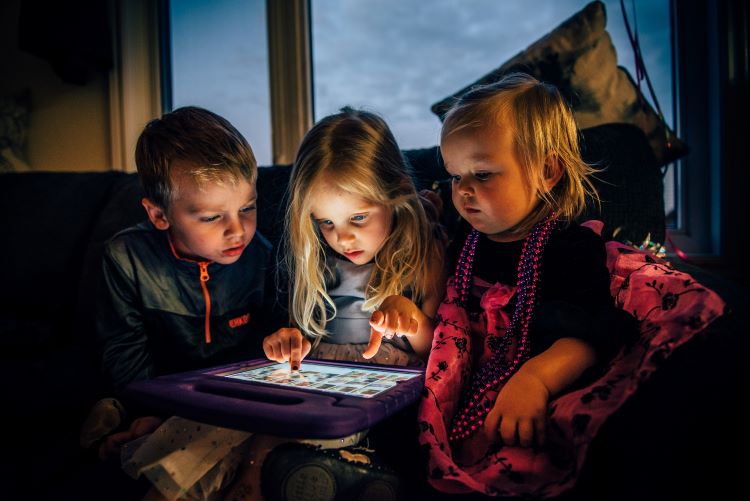The internet is a ubiquitous phenomenon, available to virtually all of us – young and old. Perhaps those among the older generations among us still have a more difficult time getting used to the internet, but they’re now in the minority. While many of us were exposed to the internet and began using it in daily life a long time after we were born, it’s very different for children today. Before many of them learn to read and write, or even walk and talk, they’re connected to the internet in some way or another – navigating it in their own way.
As parents, we seek to help our kids, allowing them the opportunity to learn skills in order to grow and develop. Without a doubt, navigating online is a skill that our children will be using throughout their lives, but how do we keep them safe?
From watching cartoons on YouTube on their tablets, to playing games on our (and their) mobile phones, laptops, and consoles, we have to become aware of their safety – both online and offline.

Monitor Access
While it sounds simple, it may sometimes be a bit more difficult than we think – especially with such ease of access to the online world. With younger children, like toddlers, it’s a lot easier to keep our eye on them and choose when they can have access to connected devices. It’s best to give them access when they’re not away from your watchful eye, making sure they don’t access anything sensitive or disturbing online – whether by accident or not. Storing your child’s tablet out of their reach is highly effective – they may even forget that it’s there.
Educate Yourself
While your kids are toddlers and even when they’re getting older, the best that you can do is keep aware of what’s happening in their lives – as best you can, of course. This includes keeping in touch with what’s happening in the online world, as well as what’s trendy among your kids’ peer group. Remember, their peer group doesn’t just extend to those they see at school and sports practice every day, but also others who they interact with regularly online. These interactions may happen over social media, messenger services, or online gaming servers. Get to know their peer group, both online and offline, and make sure the people your kid is in contact with are trustworthy. Check up on their names, numbers, email addresses or any other information that you may have to confirm that your kid is in a safe company with a people-finder service like Nuwber.
It helps if you build a strong enough relationship with your child that they’d tell you about trends or phenomena that gather traction online, but if they’re a bit more secretive, you’re going to have to keep up with that yourself or through other parents.
It’s important to note that many dangerous trends have begun online, like life-threatening challenges that may physically and emotionally harm your child.
Keep Devices Filtered
We all know that the internet is full of the filthiest content that your eyes have seen. It’s also full of great content – helpful, enlightening, and entertaining. However, it’s all too easy to come across sensitive material online, especially through pop-up adverts or even when curious minds type in more risqué keywords into the search bar. Make sure to install a filter to keep your children’s minds safe from offensive sites and content found on the internet. That way, this gives you a little more peace of mind if your older kids are online. Also, ensure that the filter can’t be turned off without a password that only you (and your partner) know.
Teach Your Kids Not to Give Our Personal Details
As your kids get older, there’s no way to prevent them altogether from communicating with others online. After all, they can even make great friends online through various platforms. Still, teach them to maintain a certain level of paranoia in dealing with anyone online whom they are not familiar with in real life. And most importantly, teach them to never give their personal details to anyone online. The stakes are too high, and it’s always wiser to stay safe rather than be sorry.

Follow or Friend Your Kids on Social Media
At the risk of turning you in that parent, we suggest that you make a point of keeping your parent-child relationship in both worlds – “real life” and online. Remember, you don’t stop being your kid’s parent when they’re online, so becoming their friends on Facebook or following them on Instagram, Snapchat, or TikTok can be useful to keep an eye on them and make sure they’re safe. Now, we’re not saying that this means you make embarrassing comments under each of their photos or posts, but keep it natural.
This allows you to understand them better by witnessing what could be a wholly different side to them, or how their personality extends into the online space. If you notice that they’ve followed questionable pages or accounts, a post concerning the content, or are receiving threats (or even micro-aggressions) from others, you’ll be able to reach out to your child before it escalates.
Remember, if your child is not comfortable with you on social media, this doesn’t always mean there’s cause for alarm. Have one of your adult friends (who your kids are cool with) follow them instead, if having their parents on social media is still embarrassing for them.
Limiting Usage and Online Access
This goes for both usage of devices in general, otherwise known as screen time, as well as online access from those devices. Too much of anything can turn into a problem, especially with the addictive nature of being online. The nature of many games, for example, means that they’ve been designed to keep eyes locked onto the screen so users can play for longer periods of time. The same goes for being connected to the internet and having constant, rapid access to vast amounts of information. Often, it’s necessary for children to wind down from the glare in their faces and the information entering their minds. It’s healthier and keeps them safer on many levels – from addiction and from extended periods of online access which can expose them to undesirable content or actions.


